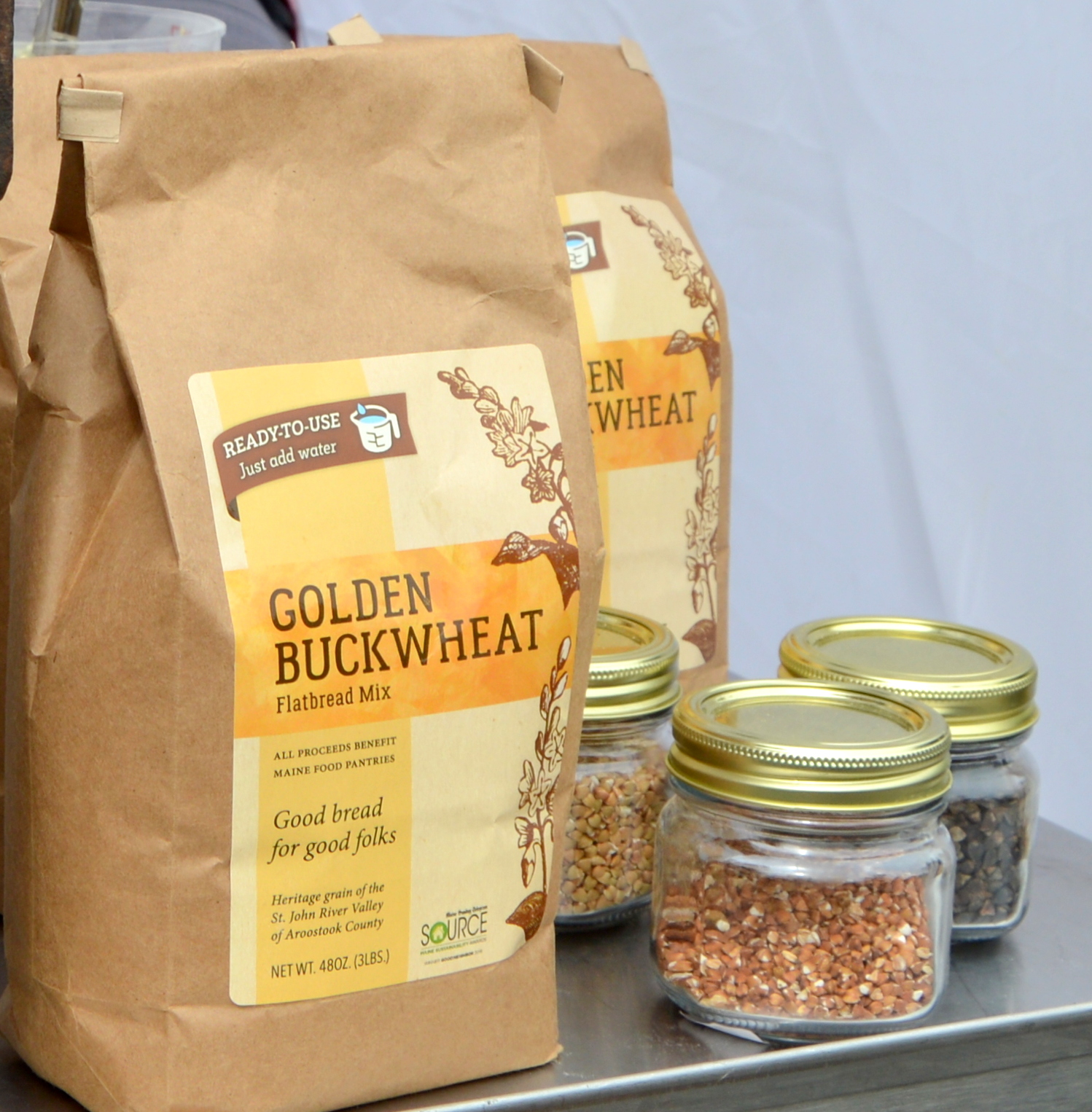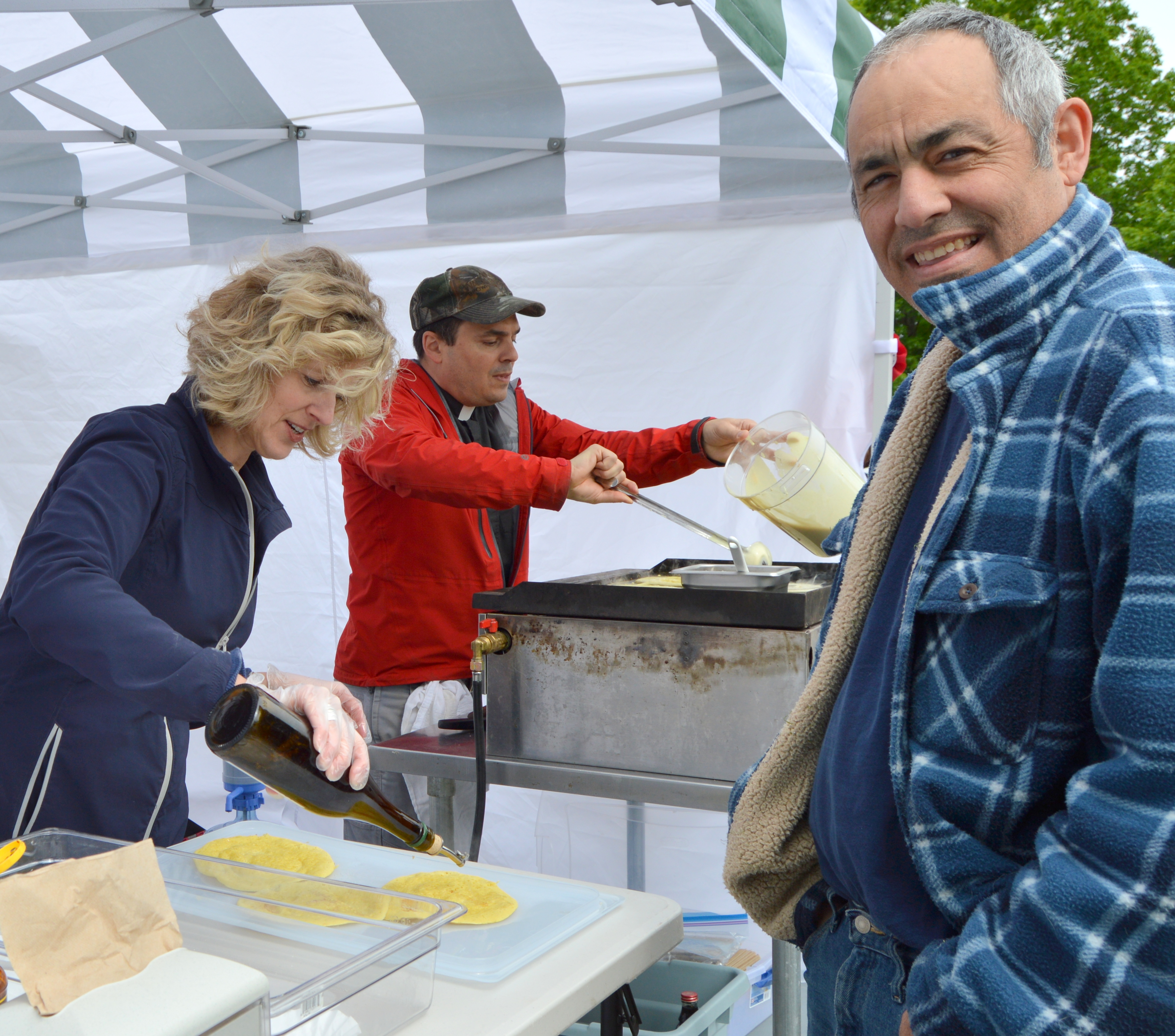FARMINGTON — It is neither a crepe nor a breakfast pancake.
A ploye (rhymes with toy) is served as an alternative to a slice of bread in the St. John River valley in northern Aroostook County, according to the Rev. Paul Dumais of St. Joseph’s Catholic Church.
The ploye is similar to a flatbread. It’s made with tartary buckwheat, which is highly nutritious and is still grown by two families in Madawaska, he said.
Based on his mission to feed the hungry, Dumais and some friends developed a product, a golden buckwheat flatbread mix. The product is intended for food pantries.
A grant from the Maine Grain Alliance provided funding for a label. People have adopted it as a retail product. It is now available in some local stores, he said
Until this week, the product had yet to be tested as a food pantry item.
A test group of 20 families from the Care and Share Food Closet in Farmington will be given the product to try, Leiza Hiltz Scerbo, food closet director, said. They’ll be be asked whether they used it and how they would use it, she said.
The mix is simple: just add water. It is also easy to cook. The buckwheat flatbread is cooked on a dry, hot skillet for 90 seconds. No need to turn it over like a pancake, Dumais said.
The little holes, or eyes as they are called, absorb the butter and maple syrup or molasses. Then the ploye is rolled. Butter and maple syrup are traditional but it could be filled with other ingredients such as peanut butter and jelly or hummus and cucumber, he said.
During a recent Good Shepherd Food Bank food giveaway, Dumais cooked and Lauren Moody of Auburn buttered and rolled ployes to distribute to people waiting in line.
“It is really good,” said Jennifer Boren, the first to try it. “It is like a crepe.”
“This is our first chance to see how people like them,” Moody said.
“It makes all the difference for people to see him make it and try it,” Scerbo said. “It is better than just giving out a bag of mix.”
Dumais made the Maine-grown buckwheat flatbread at the Fiddlehead Festival last month in Farmington. He plans to cook them for Summer Fest and a Saturday Farmers Market, he said.
Just as Dumais’ group was about to launch the product in food pantries, he was transferred from Lewiston’s Prince of Peace Parish to Farmington last July.
While growing up in northern Maine, the ploye was a staple among Acadian families, he said. It complimented a stew or baked bean dinner and fed the farmers working the fields.
While it can be made from scratch, mixes became simpler as younger people began to lose the art of making them, he said. They can also be made from a starter batter.
Dumais changed his product to a Golden Buckwheat flatbread mix. Each has a deep yellow color from the buckwheat.
The Madawaska buckwheat, also known as Acadian buckwheat, is different than Japanese buckwheat, which is used to make breakfast pancakes or soba noodles, Dumais said.
The difference is the tartary buckwheat is dense in nutrition. It could be important for food closets which find it hard to provide meat, he said.
It meets the Good Shepherd Food Bank criteria for a high-protein food, he said.
The food is packaged by a friend at Fiddler Green in Vassalboro in a licensed kitchen.
“People loved it at the recent food closet demonstration,” Hiltz Scerbo said. “It is good for you, gluten free and worth a serving of meat.”
“This fits in with my mission to feed the hungry from Matthew 25,” Dumais said.



